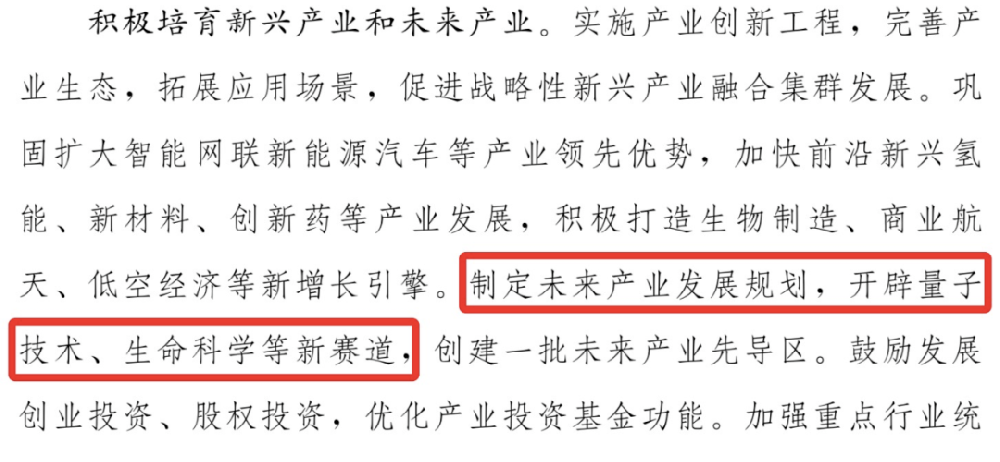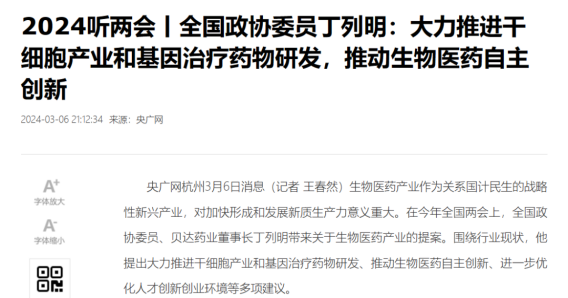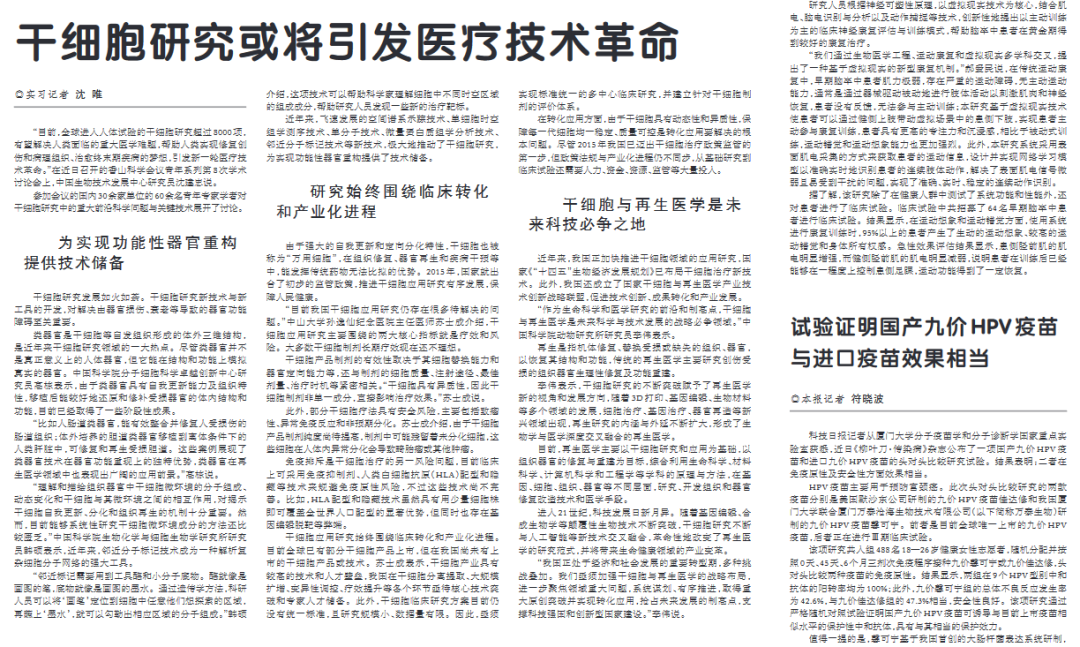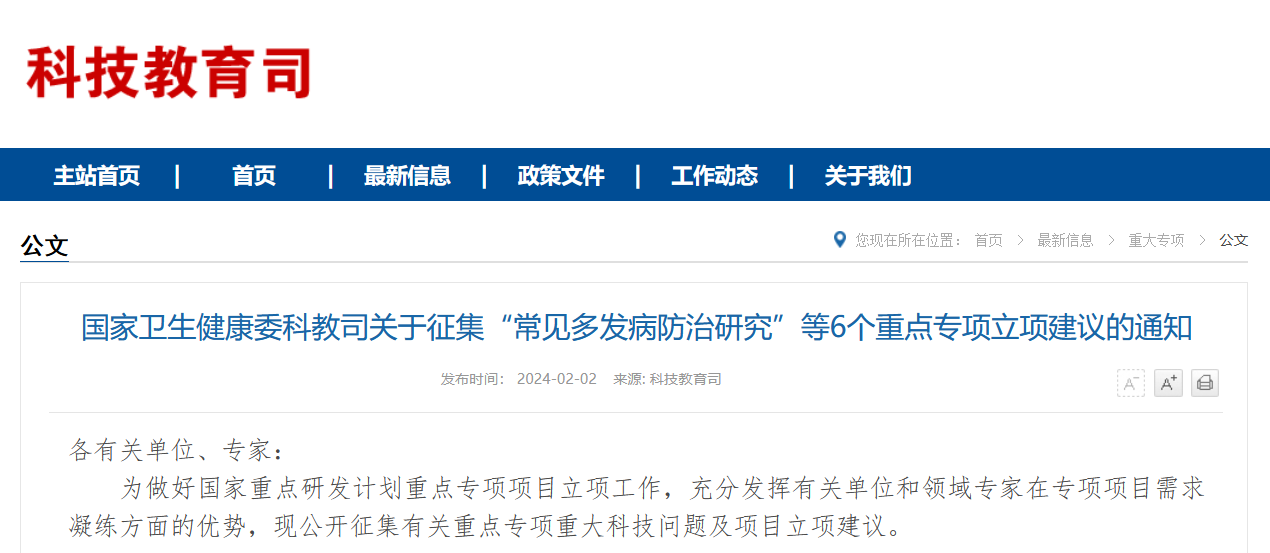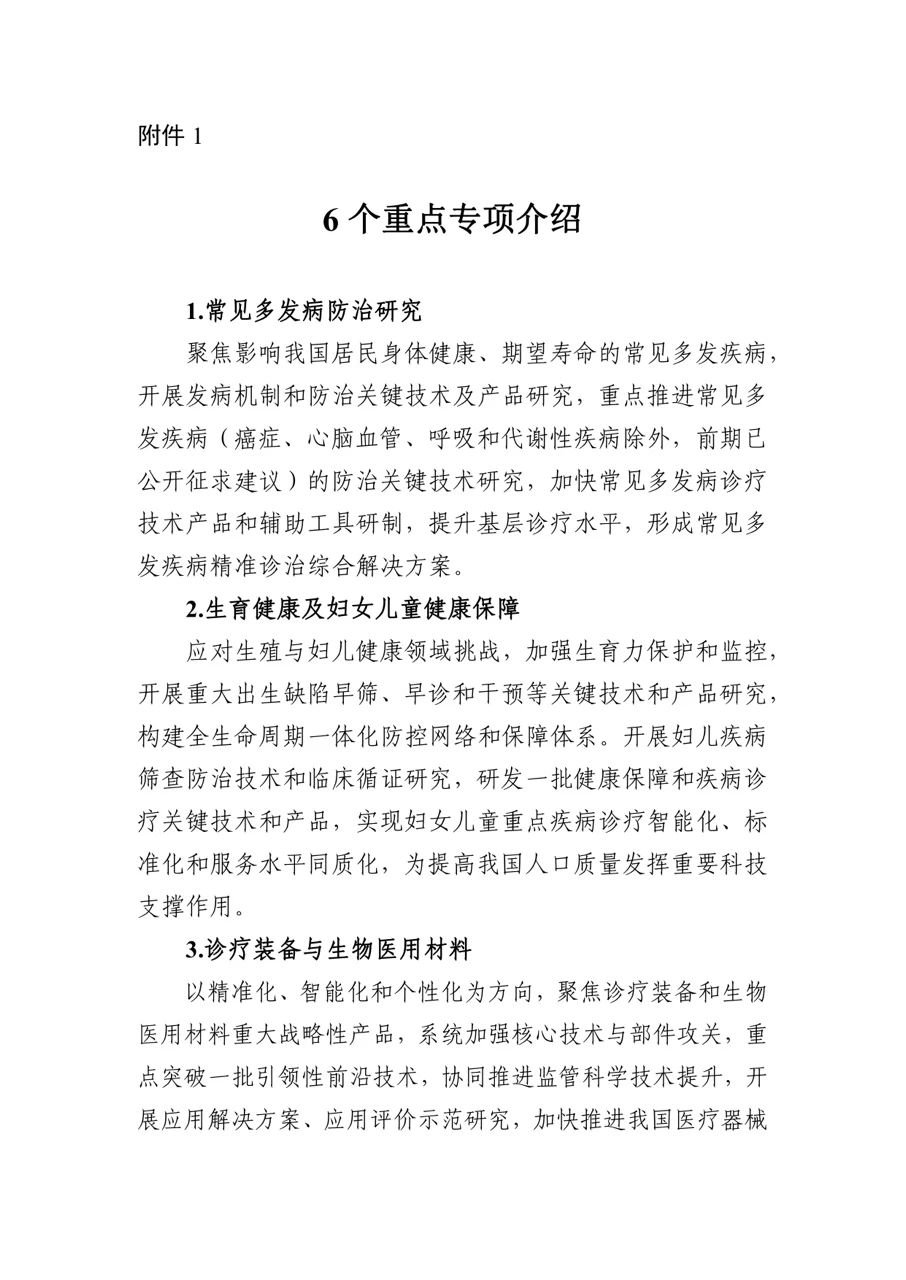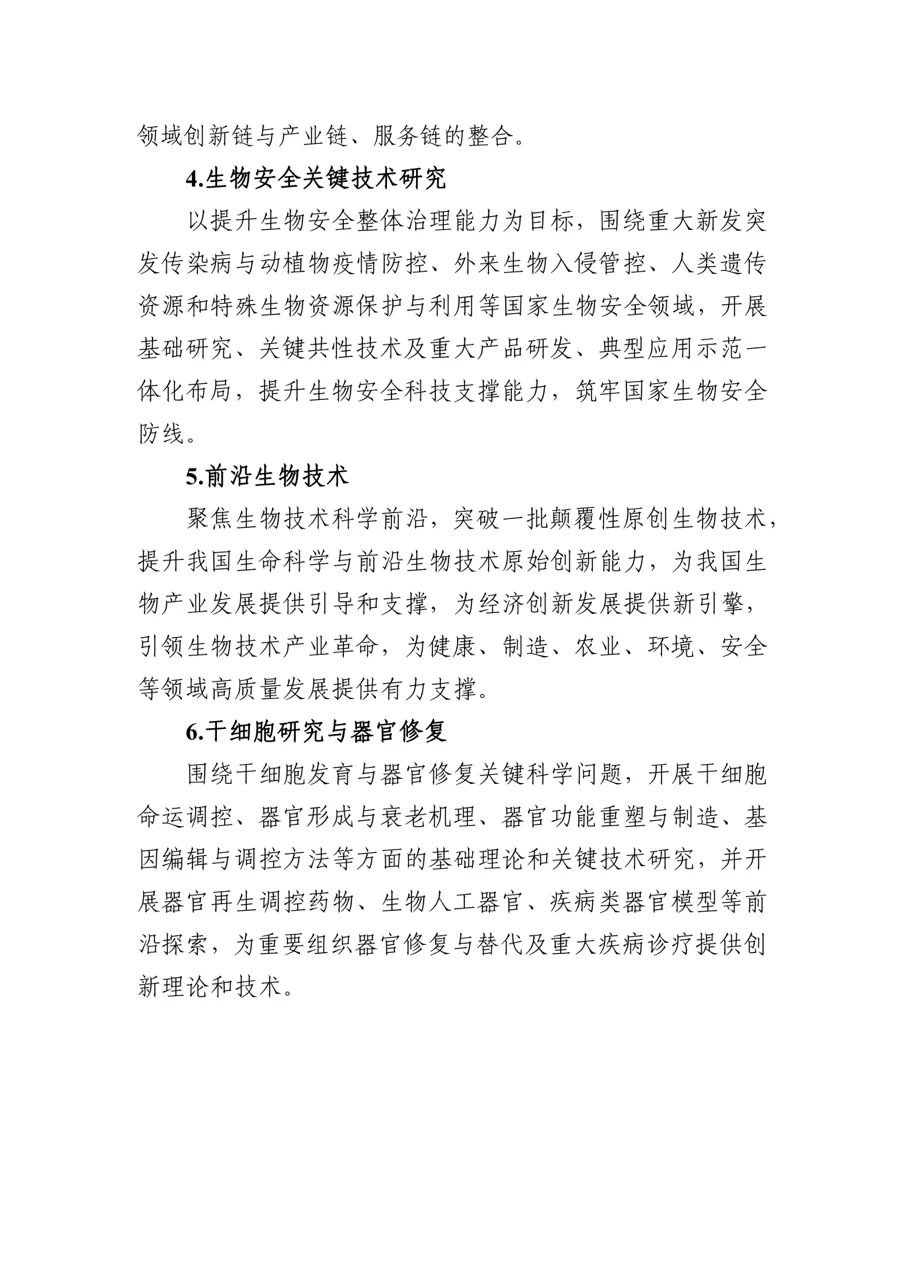Focus on stem cells! The National People's Congress, Science and Technology Daily, and National Health Commission clearly support the development of the stem cell industry
Stem cells are a type of cells with the potential for multi-directional differentiation, self-renewal, and secretion of various cytokines to participate in the repair of damaged tissues and organs. With the advancement of scientific research, stem cells have been widely used in disease treatment research in China and have achieved exciting results. It is worth noting that in recent years, stem cells have been mentioned multiple times in the National People's Congress and various public platforms. Today, this article will take a look at the public attitude of the country towards the development of stem cells and their industrialization. Voice of the Two Sessions: Vigorously Promoting Gene Therapy Research and Development and Stem Cell Industry On the morning of March 5, 2024, the Second Session of the 14th National People's Congress opened at the Great Hall of the People. This year marks the 75th anniversary of the founding of the People's Republic of China and is a crucial year for achieving the goals and tasks of the 14th Five Year Plan. The National People's Congress and the Chinese People's Political Consultative Conference held in this important year have attracted attention from all parties. Life Sciences, Cell Industry, Stem Cell Technology, Changshou Technology These keywords were mentioned and suggested by National People's Congress deputies and members of the Chinese People's Political Consultative Conference. Especially stem cells have become an important topic for the 2024 Two Sessions. With the rapid development of medical technology, stem cell and gene therapy have become one of the most promising and revolutionary treatment methods in the modern medical field. Ding Lieming, a member of the National Committee of the Chinese People's Political Consultative Conference, proposed a proposal to vigorously promote the development of stem cell production and gene therapy drugs, aiming to promote China's research and development progress in this field and enhance its competitiveness in the global biopharmaceutical field. The proposal mainly includes the following suggestions: 1. Strengthening the supply of industrial policies: The government should introduce more favorable policies, encourage enterprises and research institutions to invest in the research and development of stem cell and gene therapy drugs, provide financial support, tax reduction and other preferential measures. 2. Guiding domestic capital investment: By establishing special funds and guiding social capital, more funds are attracted to invest in the research and development of stem cell and gene therapy drugs, forming a diversified and sustainable funding mechanism. 3. Adhere to science without borders and deepen international cooperation: On the premise of complying with international rules and human genetic resource management requirements, strengthen cooperation with foreign scientific research institutions and enterprises, and jointly promote the research and application of stem cells and gene therapy drugs. 4. Relaxing restrictions on foreign investment: allowing foreign investment in the field of CGT (Cell and Gene Therapy) in China, promoting synchronous competitive development of domestic and foreign enterprises, and accelerating the deep integration of industrial chains, supply chains, funding chains, and talent chains。 This is not the first appearance of life sciences in 2024. As early as the beginning of the year, stem cells, as an important research direction in life sciences, have appeared on the stage of the two sessions several times. Science and Technology Daily article: Stem cell research may trigger a medical technology revolution Recently, the Science and Technology Daily published an article about stem cells. At a scientific conference, many scientists expressed their views on the "new star" stem cell technology in regenerative medicine and unanimously believed that stem cells would trigger a new round of medical technology revolution. At present, regenerative medicine is mainly based on stem cell research and application, with the goal of repairing and reconstructing tissues and organs. It comprehensively utilizes the principles and methods of life science, materials science, computer science, and engineering to research and develop tissue and organ repair and transformation technologies and medical methods at different levels such as genes, cells, tissues, and organs. Entering the 21st century, technological development is advancing rapidly. With the continuous breakthroughs in disruptive biotechnology such as gene editing and synthetic biology, stem cell research is constantly intertwined with new technologies such as artificial intelligence, revolutionizing the research paradigm of regenerative medicine and bringing about industrial transformation in the field of life and health. The Science and Education Department of the National Health Commission has solicited proposals for the establishment of a key special project on "stem cell research and organ repair" On February 2, 2024, the Science and Education Department of the National Health Commission issued a notice on soliciting proposals for six key special projects, including research on the prevention and control of common and frequent diseases, in order to do a good job in the establishment of national key research and development plans and fully leverage the advantages of relevant units and experts in the field in condensing the needs of special projects. At present, regenerative medicine is mainly based on stem cell research and application, with the goal of repairing and reconstructing tissues and organs. It comprehensively utilizes the principles and methods of life science, materials science, computer science, and engineering to research and develop tissue and organ repair and transformation technologies and medical methods at different levels such as genes, cells, tissues, and organs. Entering the 21st century, technological development is advancing rapidly. With the continuous breakthroughs in disruptive biotechnology such as gene editing and synthetic biology, stem cell research is constantly intertwined with new technologies such as artificial intelligence, revolutionizing the research paradigm of regenerative medicine and bringing about industrial transformation in the field of life and health. The Science and Education Department of the National Health Commission has solicited proposals for the establishment of a key special project on "stem cell research and organ repair" On February 2, 2024, the Science and Education Department of the National Health Commission issued a notice on soliciting proposals for six key special projects, including research on the prevention and control of common and frequent diseases, in order to do a good job in the establishment of national key research and development plans and fully leverage the advantages of relevant units and experts in the field in condensing the needs of special projects. Stem cells are like "seeds of life", which can differentiate into cells with various functions under certain conditions. They have the ability to repair and regenerate organs and various tissue functions, providing new possibilities for treating diseases such as the immune system, nervous system, blood system, cardiovascular system, bone and joint systems. Currently, the trend of national policies supporting the development of the stem cell industry is becoming increasingly clear, and laws and regulations will also be improved accordingly. We believe that with the deepening of scientific research and technological breakthroughs, the field of stem cells will usher in even more brilliant moments. In the near future, stem cell technology will benefit more patients and light up the hope of human health!